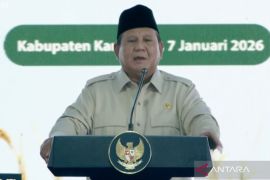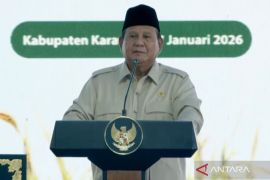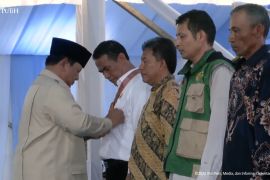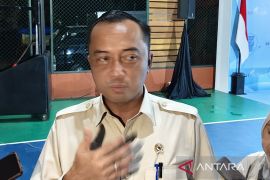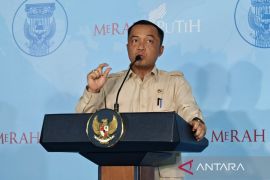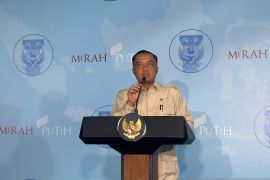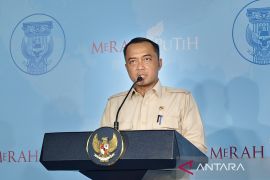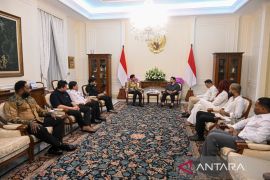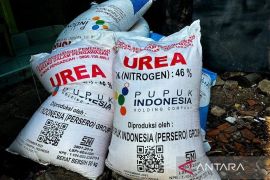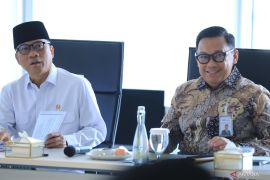"The target of 4 plus/minus one percent is achievable if joint efforts are made, including by regional governments," he stated at a press conference after opening and leading the sixth national coordination meeting of regional inflation control teams (TPID).
He added that most problems affecting inflation were connected with distribution, stock and prices of goods and services.
The government will improve the system of trade of various commodities and "create an auction market to ensure that prices reflect the real ones based on supply and demand," the president affirmed.
By improving the trade system and facilitating the presence of an auction market, producers, farmers in this case, will also enjoy profits that have been enjoyed more by traders so far, Jokowi remarked.
Regarding infrastructure development, he emphasized that the government will focus on food, connectivity and energy infrastructure.
"Food infrastructure includes building dams and irrigation networks," he said.
On the role of logistics company Bulog, he expressed hope that the state-owned company will act not only as a rice buffer but will also play a greater role. However, the Indonesian president admitted that it will time to make Bulog be able to play a bigger role.
"If all efforts made are successful, inflation may reduce by a lot," he stressed.
Moreover, Governor of Bank Indonesia Agus Martowardojo said on the occasion that the rate of inflation is expected to drop to reach 3.5 plus/minus one percent by 2018.
"We just agreed on the need for synergy with regard to policies issued by ministries/institutions and regional governments," he remarked.
All parties, Martowardojo added, must ensure availability of food supply, affordability of commodities and intensive communication among regions.
"There must also be a synergy between the central and regional governments with regard to development of food, connectivity and energy infrastructure," he noted.
In his opening speech, the central bank governor praised the presence of President Joko Widodo at the meeting, stating, "It is an honor for us because the president is willing to not only open the meeting but to lead it himself."
As this was the first of five meetings, the head of state was attending it, he added.
The meeting was attended by regional leaders from across the country.
Martowardojo also pointed out that 2014 had passed with inflation kept under control at a single digit, or 8.36 percent, in the midst of pressures following the implementation of the energy subsidy reform policy.
Inflation in 2014 was lower than that in 2013, when it was recorded at 8.38 percent, he said.
However, as compared to those of neighboring countries, it is still higher because by April, the rate of inflation in Indonesia had reached 6.79 percent, while it was only at minus 1.0 percent in Thailand and 2.2 percent in the Philippines.
The meeting this time was based on the theme of "Optimizing the Role of Regional Governments in Supporting Stabilization of Prices through Acceleration of Infrastructure Development and Improvement of Trade System in the Regions." (*)
Editor: Heru Purwanto
Copyright © ANTARA 2015
